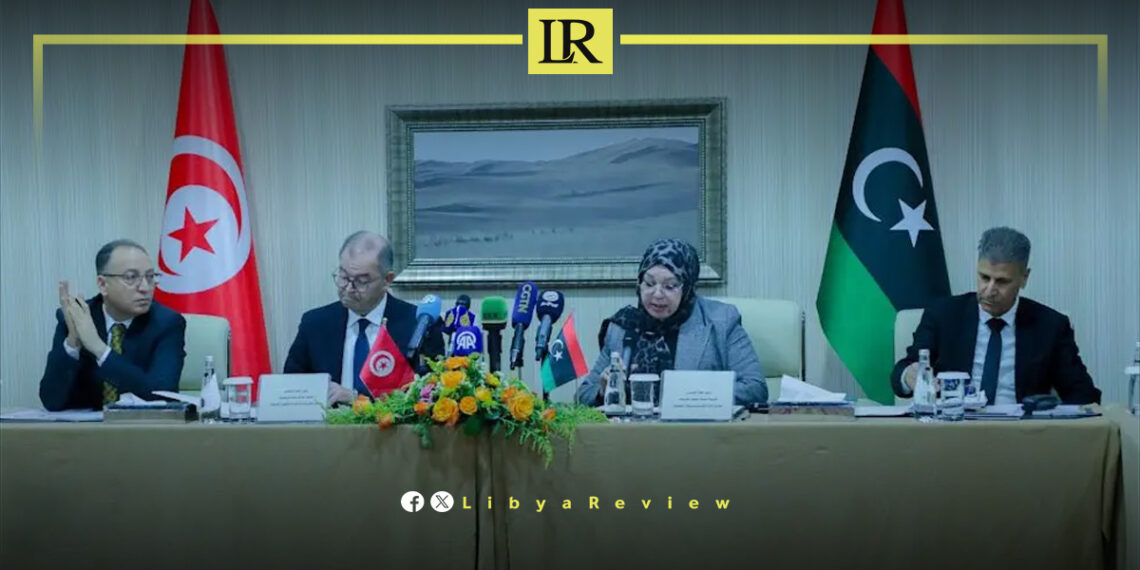The tenth session of the Libyan-Tunisian Joint Consular Committee officially commenced on Tuesday in Tripoli, marking the first time the meetings are held on Libyan soil since 2010. The event symbolises a significant improvement in Libya’s security environment and a renewed momentum for regional cooperation.
The session was inaugurated by Najat Al-Shaif, Director of the Consular Affairs Department at Libya’s Ministry of Foreign Affairs and International Cooperation (Government of National Unity), alongside her Tunisian counterpart, Mohamed Al-Tarjman, Director General of Consular Affairs at Tunisia’s Ministry of Foreign Affairs. The event gathered senior officials and diplomats from both nations.
In her opening remarks, Al-Shaif welcomed the Tunisian delegation and expressed Libya’s pride in the enduring ties between the two countries. She stressed that hosting the session in Tripoli reflects Libya’s progress toward political and institutional stability and demonstrates the shared commitment to enhancing consular cooperation and improving services for citizens.
Al-Tarjman, in turn, praised the warm reception and acknowledged Libya’s recent strides in security and governance. He reaffirmed Tunisia’s determination to strengthen bilateral consular relations in a way that advances the shared interests of both peoples.
Over the two-day session, the committee will address a range of bilateral issues including:
Enhancing cooperation in consular affairs
Simplifying administrative procedures for citizens
Addressing the status of Libyan and Tunisian communities residing in each country
Improving coordination on border crossing, residency, labour, education, and healthcare
The committee will also explore security, economic, and judicial cooperation, focusing on mechanisms for data exchange and coordination that will strengthen both countries’ capacity to tackle shared challenges and foster deeper economic and social integration.
The Libyan-Tunisian Joint Consular Committee is a cornerstone of bilateral cooperation, serving as a key platform for reviewing existing agreements and activating consular coordination mechanisms. The last session was held in Tunisia in 2017.


